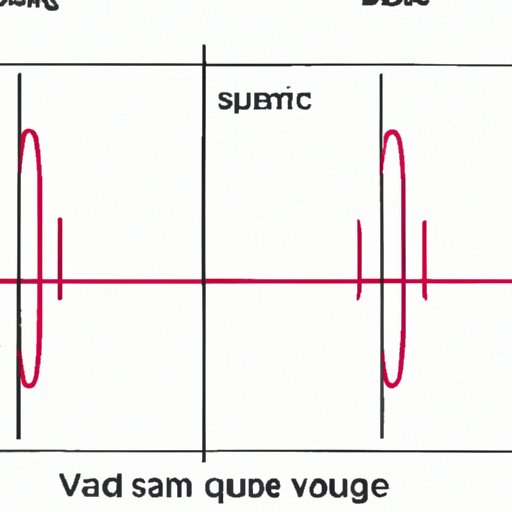Introduction
Sound is a form of energy produced by vibrations. When an object vibrates, it creates sound waves, which are longitudinal waves of pressure that carry energy from one point to another. These sound waves require a medium (such as air, water, or other material) in order to travel. In this article, we will explore why sound needs a medium to travel, examining the physics of sound waves and how they interact with different materials.

Exploring the Physics of Sound Waves and Why They Require a Medium to Travel
Sound waves are created when an object vibrates, producing alternating regions of compression and rarefaction. These regions move through the medium, carrying energy from the source of the vibration to wherever the sound wave is detected. The way in which sound waves travel through different media depends on the properties of the medium. For example, sound waves travel faster through denser media such as liquids and solids than through gases such as air.
The physics of sound wave transmission involve several factors, including wavelength, frequency, and amplitude. The wavelength is the distance between two successive compressions or rarefactions, while the frequency is the number of these compressions or rarefactions per second. The amplitude is the maximum displacement of a particle from its equilibrium position. All of these factors affect the speed of sound waves in different media.

Examining the Impact of Sound Waves on Different Types of Materials
When sound waves pass through a medium, they interact with the particles in the medium and cause them to vibrate. This causes pressure variations in the medium, which can have an impact on the properties of the material. For example, sound waves passing through a gas such as air will cause the air molecules to vibrate, resulting in a decrease in pressure.
In liquids and solids, sound waves cause particles to vibrate in the same direction as the wave. This creates an increase in pressure, which can be used to measure the speed of sound. The greater the pressure, the faster the sound wave travels through the medium.

Investigating the Properties of Vibrations that Create Sound
Vibrations are the primary source of energy for sound waves. When an object vibrates, it produces sound waves that travel away from the source in all directions. The frequency of the vibration determines the pitch of the sound, while the amplitude determines the loudness. Temperature also affects the speed of sound, since warmer air has a higher density and therefore carries sound waves faster than cooler air.
Comparing the Speed of Sound in Various Media
The speed of sound varies depending on the medium it is traveling through. In general, sound travels faster in denser media, such as liquids and solids. For example, sound waves travel at approximately 1,480 meters per second in air, while they travel at approximately 4,800 meters per second in water. The speed of sound also varies depending on the temperature of the medium, with warmer air carrying sound faster than cooler air.
Conclusion
In conclusion, sound waves require a medium to travel because they are created by vibrations and need something to interact with in order to propagate. The speed of sound waves depends on the properties of the medium, such as its density, pressure, and temperature. Sound travels faster in denser media such as liquids and solids than in gases such as air. By understanding the physics of sound waves and how they interact with different materials, we can better understand why sound needs a medium to travel.
(Note: Is this article not meeting your expectations? Do you have knowledge or insights to share? Unlock new opportunities and expand your reach by joining our authors team. Click Registration to join us and share your expertise with our readers.)
